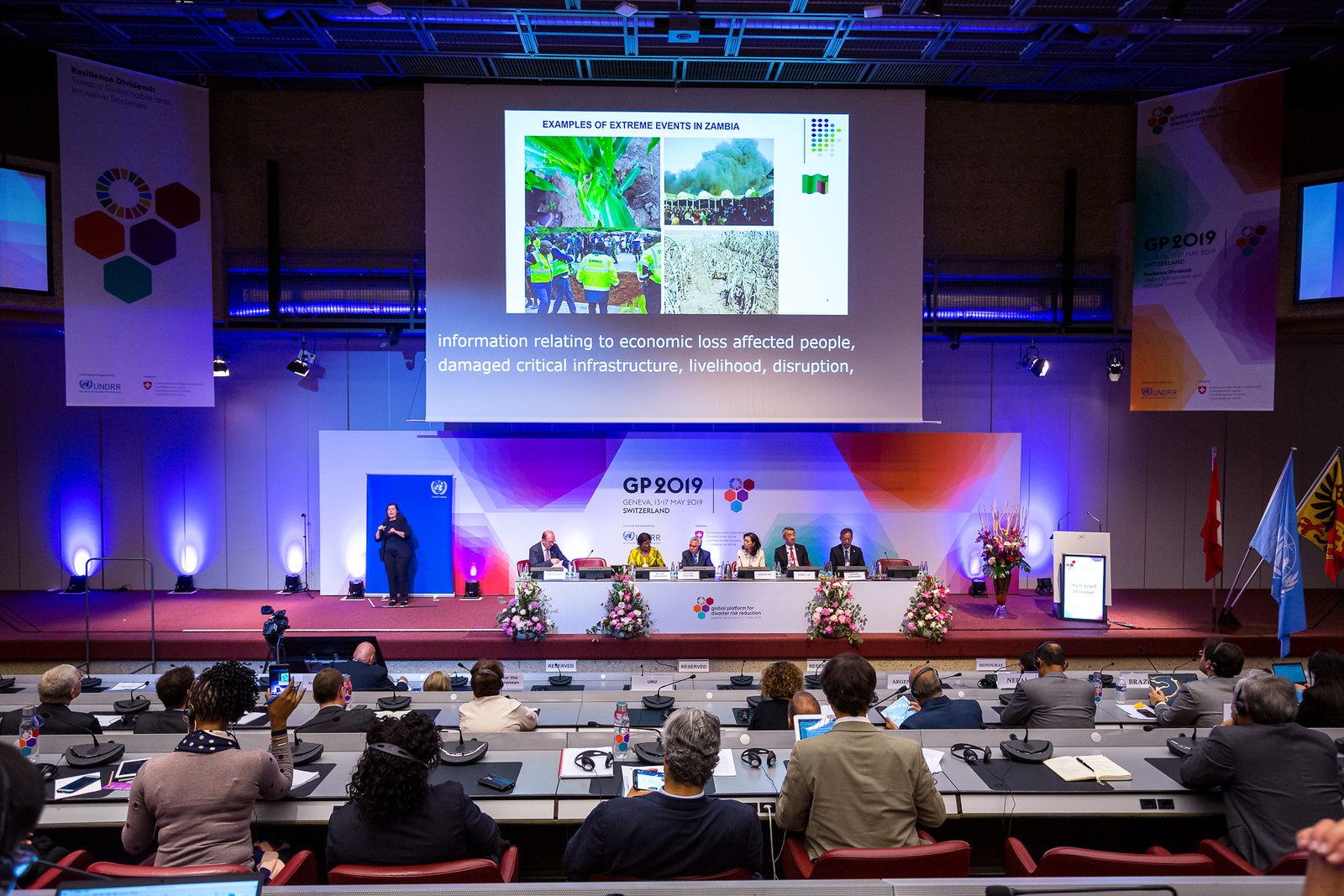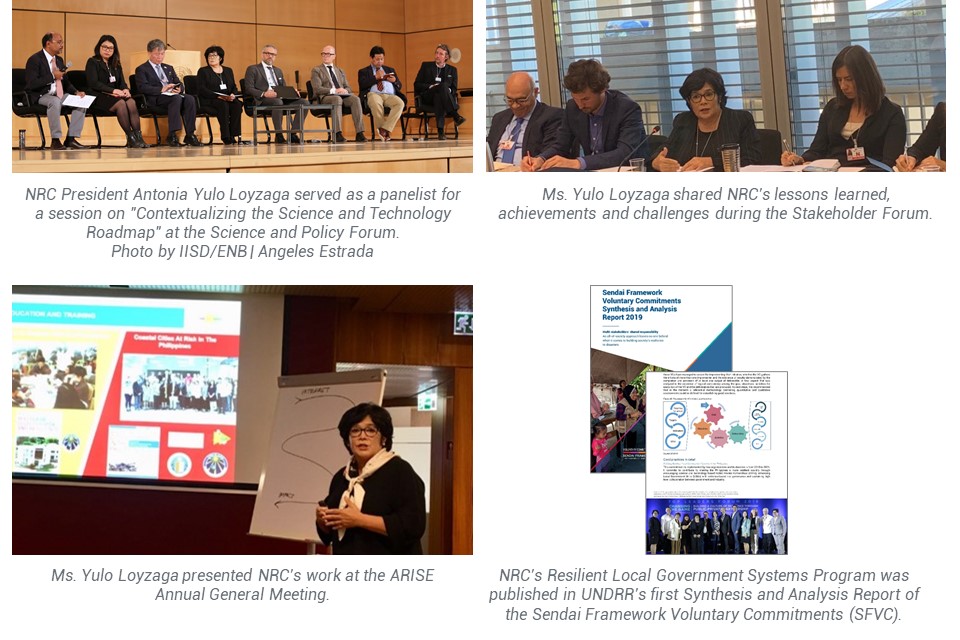
The National Resilience Council (NRC) attended the UN Office for Disaster Risk Reduction’s (UNDRR) 2019 Global Platform for Disaster Risk Reduction (GP2019), where NRC had several opportunities to share its resilience work with representatives of member states, parliamentarians, local governments, UN bodies, intergovernmental organizations and other stakeholder groups.
Held from May 13 to 17 in Geneva, Switzerland, GP2019 was the last global session before achieving Target E of the Sendai Framework: Substantially increase the number of countries with national and local disaster risk reduction strategies by 2020. UNDRR organizes the Global Platform every two years as a chance to evaluate programs and initiatives, share knowledge on and discuss the progress and trends in disaster risk reduction (DRR).
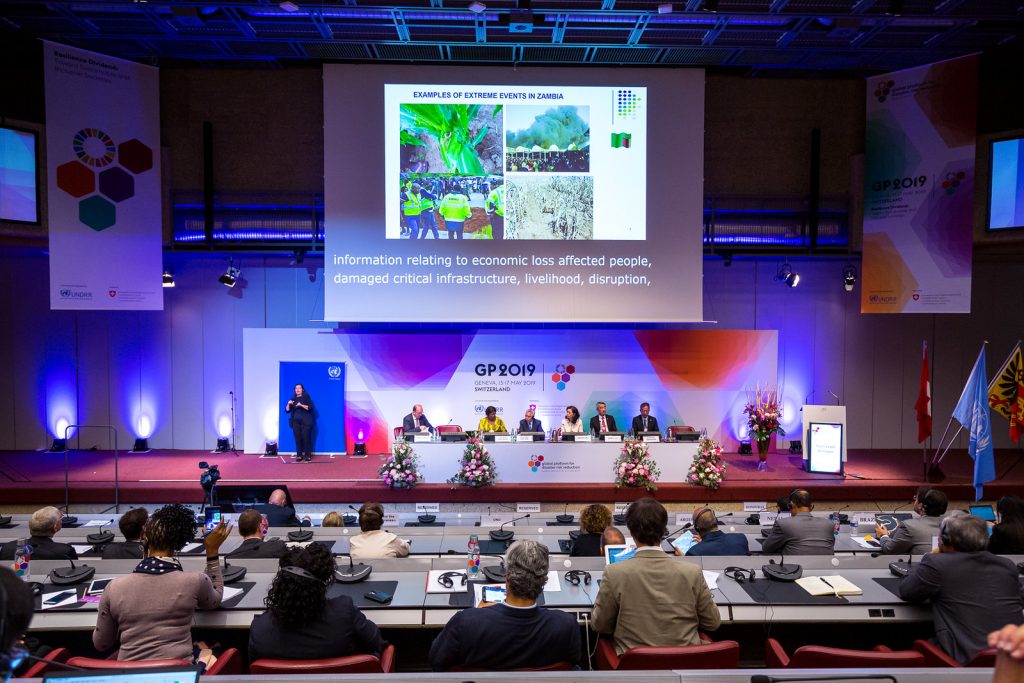
Private Sector Alliance for Disaster Resilient Societies (ARISE) International Board Member, SM Prime Executive Committee Chairman and NRC Co-Chair for Private Sector, Mr. Hans Sy, was a panelist in the May 14 session on “Building the resilience of MSMEs to climate and disaster risk” during Private Sector Day. It tackled the needs of MSMEs in relation to climate and disaster resilience building, as well as addressed the bigger picture of MSMEs supporting and investing in disaster resilience.
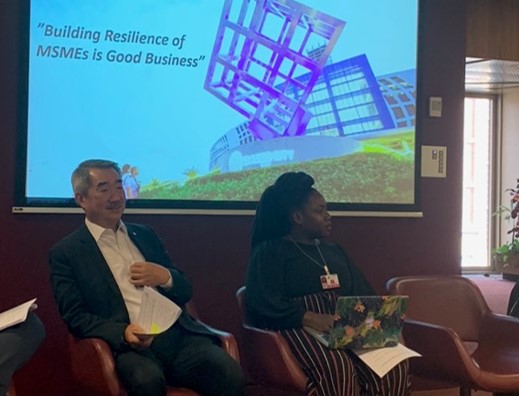
Mr. Sy also spoke in the May 16 High Level Dialogue session on “Risk-Informed Public and Private Investments”. It was an opportunity to share best practices and explore approaches to coming up with good risk-informed and multi-dividend investments. During the session, Mr. Sy highlighted SM Prime’s investments to resilience and the work of NRC in reducing security risk by addressing informal settlement issues in Metro Manila.
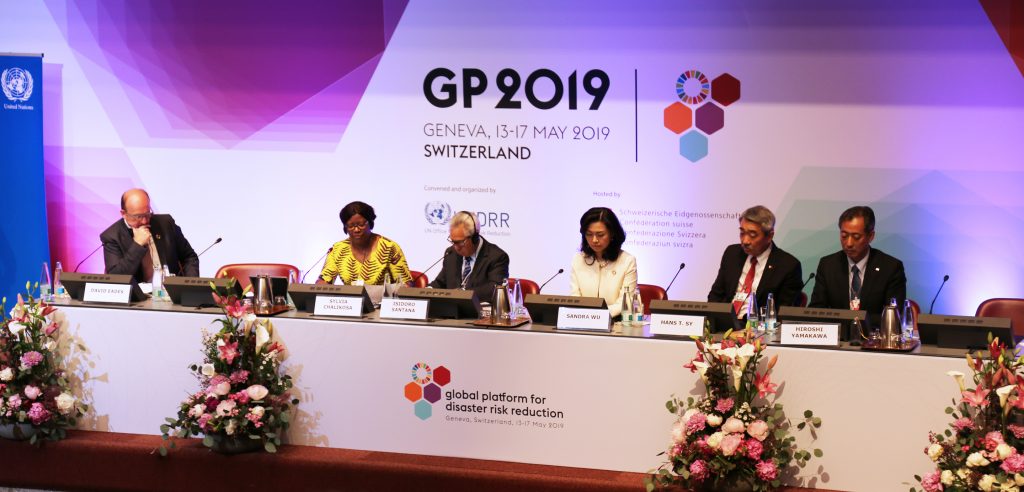
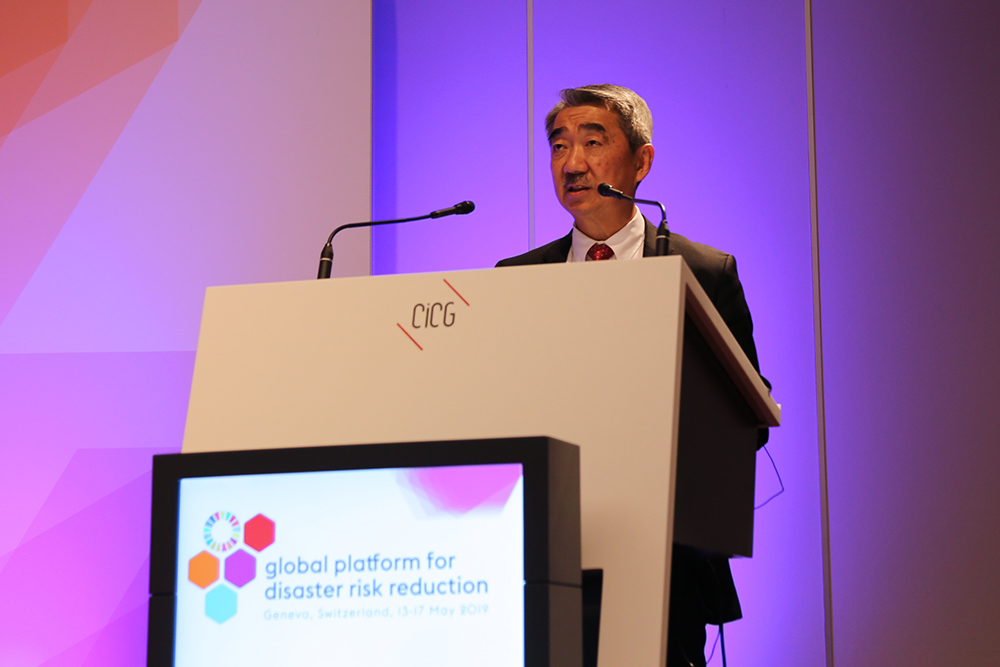
NRC President Antonia Yulo Loyzaga, meanwhile, spoke in a session on “Contextualizing the Science and Technology Roadmap” at the Science and Policy Forum. The session aimed to encourage participants in adopting and contributing to the revised “Science and Technology Roadmap to support the Implementation of the Sendai Framework for Disaster Risk Reduction 2015-2030”, a roadmap developed during the January 2016 Science and Technology Conference in Geneva.
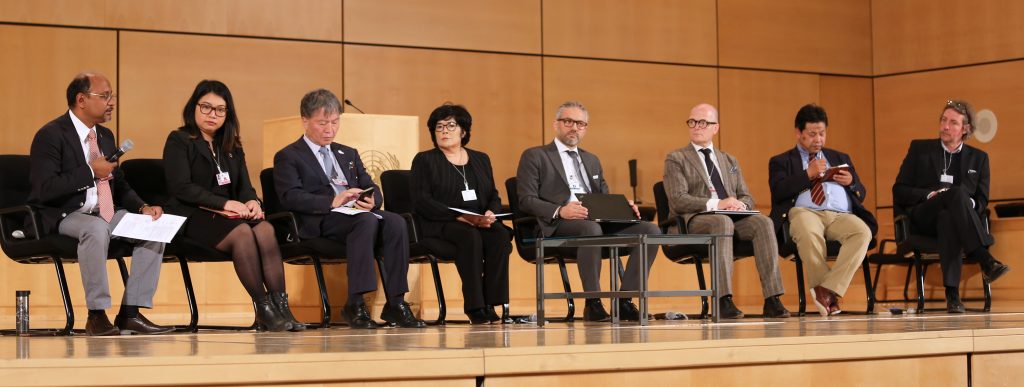
On the same day, Ms. Loyzaga participated as a panelist at an interactive discussion on “Mechanisms for Impact: Identifying Modalities towards Successful SEM” at the Stakeholder Forum. The session allowed participants to share and learn good practices from initiatives around the world with a multi-sectoral approach to disaster risk reduction and resilience. SEM, or the Stakeholder Engagement Mechanism, is a UNDRR initiative that aims to foster closer engagement among stakeholders in the implementation of the Sendai Framework, while also linking itself to other processes with similar mechanisms.
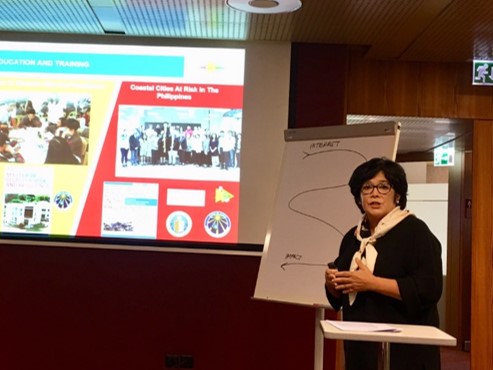
Ms. Yulo Loyzaga presented NRC’s work at the ARISE Annual General Meeting. 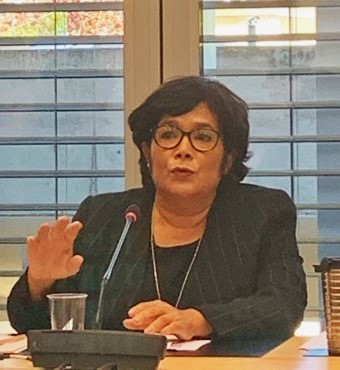
Ms. Yulo Loyzaga served as a panelist during the Stakeholder Forum.
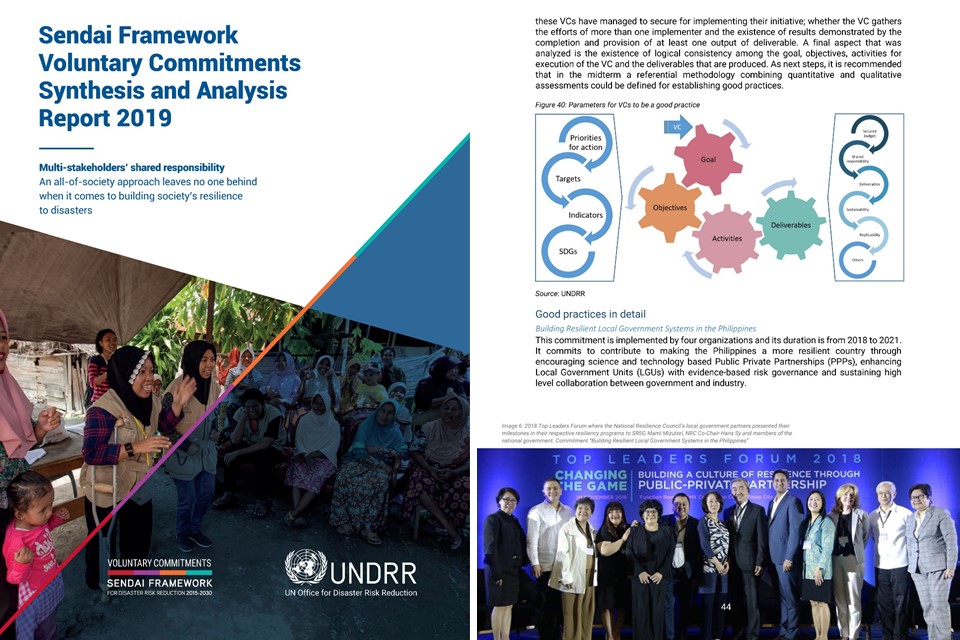
On May 16, UNDRR unveiled its first Synthesis and Analysis Report of the Sendai Framework Voluntary Commitments (SFVC), a report which included NRC’s voluntary commitment (VC) entitled “Building Resilient Local Government Systems in the Philippines”. Prior to GP2019, UNDRR approved and published NRC’s Resilient Local Government Systems Program in the SFVC online platform, an initiative launched on December 2018 that aims to encourage all-of-society and multi-stakeholder engagement in implementing the Sendai Framework.
The report cited NRC as a good example for gathering organizations with varying expertise, resources and capacities—such as Ateneo de Manila University, Manila Observatory and Zuellig Family Foundation as implementing partners and Carlos P. Romulo Foundation, San Miguel Corporation and SM Prime as funding partners—to strengthen and implement its programs and initiatives.
